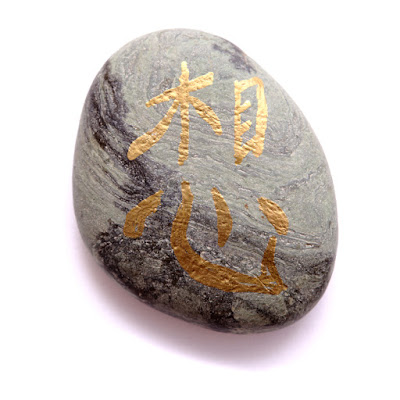In Mandarin Chinese, 想 (Pinyin: xiǎng 🔊) stands for “to think”, “to guess”, “to miss”, “to want”, “to wish for”, “would like”, etc. Thus 我想你 or 我想妳 (wǒ xiǎng nǐ) may mean “I miss you” or “I think about you”, just as is the case with 思. However, there are some subtle differences between the two. For instance, one would use 我想你 (rather than 我思你) to say “I miss you” to a person one is romantically attracted to, perhaps in a hope to hear 我也想你, “I miss you too”.
According to Wiktionary, 想 is a phono-semantic compound of semantic 心, “heart/mind”, and phonetic 相 (xiāng 🔊) which, in its turn, is an ideogrammic compound of our old friend 木 “tree” and 目 “eye”. So 相 — literally “watching the tree”— is translated as “to see for oneself” or “evaluate”; it also could be used as an adverb meaning “mutually”, “reciprocally”, “towards each other”, “one another”, “together” and suchlike. I, or the folk etymologist in me, would like to think (can I say 我想思?) that 相 brings not just phonetics but also this implicit reciprocity into 想. On the other hand, 思 is more “cerebral” kind of thinking — remember the “fontanel” hypothesis?
The historical forms of 想 show some variation in relative placement of its three components. In contrast to 思, which reminds me of a Viking longship, 想 looks like an oared two-masted sailing vessel, maybe a lancaran.
Sure enough, 思 and 想 can be combined in one word, 思想 (sīxiǎng 🔊), “thought” or “idea”. Other compounds of 想 include
More photos related to thought, hanzi and calligraphy @ Shutterstock.







